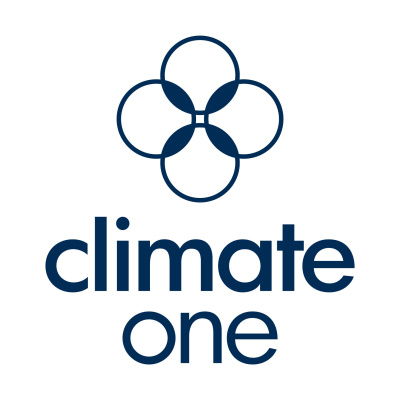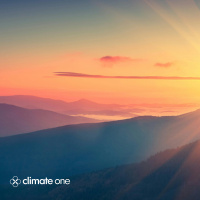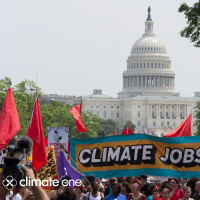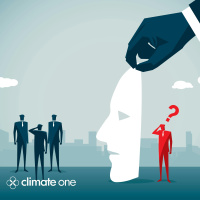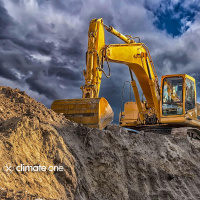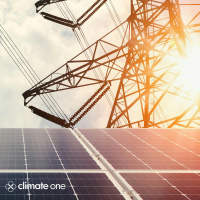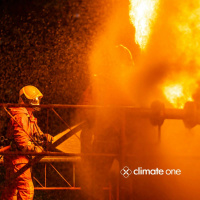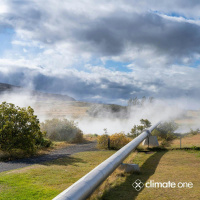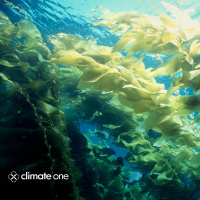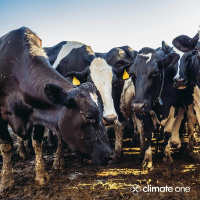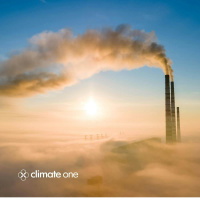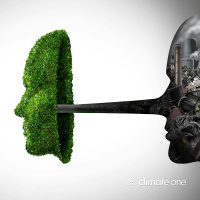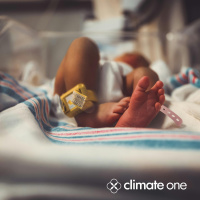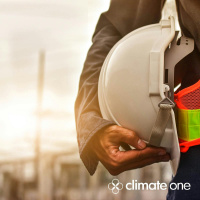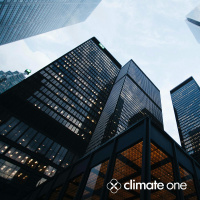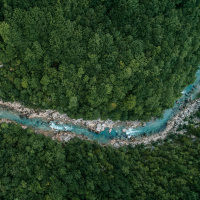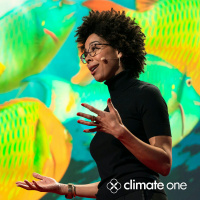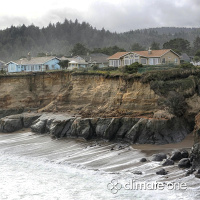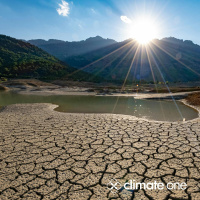Sinopsis
Greg Dalton is changing the conversation on energy, economy and the environment by offering candid discussion from climate scientists, policymakers, activists, and concerned citizens. By gathering inspiring, credible, and compelling information, he provides an essential resource to change-makers looking to make a difference.
Episodios
-
Dismantling White Supremacy to Address the Climate Crisis
29/04/2022 Duración: 55minA fundamental injustice of the climate crisis is that those who have contributed to it least are already bearing the brunt of the impacts, and that will continue as global temperatures rise. Like many other environmental and societal challenges, we can’t make real progress if certain groups are left behind. How might a new model for working together to solve interconnected crises, by tracing the origins of ecofeminism, environmental justice and other movements that center the voices and experiences of Black, Indigenous and people of color, work? Guests: Leah Thomas, author, Founder, The Intersectional Environmentalist Hop Hopkins, director of organizational transformation, The Sierra Club Learn more about your ad choices. Visit megaphone.fm/adchoices
-
Climate & Democracy with Jamie Raskin, Heather McGhee and Rebecca Willis
21/04/2022 Duración: 01h49sCongressman Jamie Raskin (D-MD) took the national spotlight as the lead manager for the second impeachment trial of the former president. As a member of the House Oversight and Reform Committee, he has grilled fossil fuel executives on the industry’s long history of intentionally misleading the public. And as a constitutional law professor, he has offered deep insight into the connections between an informed citizenry and a robust democracy. At a time when many Americans doubt Congress’s ability to get anything done, what are the government’s strongest levers for climate action? And what are the connections between climate and democracy? This story is part of ‘Climate & Democracy,’ a series from the global journalism collaboration Covering Climate Now. Guests: Jamie Raskin, U.S. Representative, Maryland’s 8th Congressional District Heather McGhee, Board Chair, Color of Change; author, The Sum of Us: What Racism Costs Everyone and How We Can Prosper Together Rebecca Willis, Professor, Lancaster University; a
-
Breaking Down Climate Misinformation with Amy Westervelt and John Cook
15/04/2022 Duración: 01h02minFossil fuel companies and others have spent decades casting doubt on climate science to allow them to continue to profit. As documented by climate communication expert John Cook and others, these strategies have taken many forms: deny, dismiss, delay, deflect; and they have evolved over time. They’ve also included a concerted effort to recast political speech, banned and regulated in some contexts, as protected free speech, giving corporations more leeway in broadcasting their messages. In a special collaboration with Amy Westervelt of Drilled, we trace the origins of this free speech argument and break down the tactics used to spread misinformation. Guests: Amy Westervelt, journalist, Founder and Executive Producer, Drilled, Critical Frequency Podcast Network John Cook, Postdoctoral Research Fellow, Climate Change Communication Research Hub, Monash University Learn more about your ad choices. Visit megaphone.fm/adchoices
-
Can We Get Clean Energy Without Dirty Mines?
08/04/2022 Duración: 59minGlobal sales of electric vehicles more than doubled in 2021. Projections for this year are for another huge gain as more automakers introduce more models with increasing range. This is all good news for transitioning to a clean energy economy. But sourcing the materials needed for clean energy might not be so clean. Mining is the leading industrial polluter in the U.S., but the climate crisis demands a transition to technologies that require raw materials to be extracted. How can the world get the minerals it needs to mitigate the climate crisis without creating other ecological disasters in the process? Guests: Morgan Bazilian, Director, Payne Institute, Colorado School of Mines Payal Sampat, Mining Program Director, Earthworks Maureen Penjueli, Coordinator, Pacific Network on Globalisation Learn more about your ad choices. Visit megaphone.fm/adchoices
-
Solar Flare-ups
01/04/2022 Duración: 57minEarlier this year, California regulators were set to propose significant changes to the incentives that drive rooftop solar installations. After widespread opposition from industry and climate advocates, the California Public Utilities Commission paused the effort. The issue centers on how much rooftop solar customers pay to use the grid and what rewards they get for selling their excess power. But California is far from the only state where net metering is a hotly contested issue. While utility-scale projects may offer more bang for the buck in some contexts, rooftop solar offers distributed generation and a tool for resilience. This week, we explore the debate between rooftop and utility-scale solar. Guests: Adam Browning, Co-Founder and Executive Director Emeritus, Vote Solar Bernadette Del Chiaro, Executive Director, California Solar and Storage Association Tom Beach, Principal Consultant, Crossborder Energy Emily Sanford Fisher, General Counsel & Corporate Secretary, Sr. Vice President, Clean Energy,
-
Coping with COVID and Climate Fatigue
25/03/2022 Duración: 53minSince March 2020, the global community has grappled with an unprecedented pandemic. At first, most people were willing to do what it takes to keep themselves and others safe. Two years in, pretty much everyone feels exhausted by the effort and by the general anxiety of living with COVID. The global community simultaneously faces an even greater existential threat: climate change. For those fighting to stave off this slower-moving catastrophe, fatigue is a familiar feeling. What have we learned from two years of COVID disruption that can inform how we deal with climate fatigue? Guests: David Wallace-Wells, Editor-At-Large, New York Magazine Britt Wray, Human and Planetary Health Fellow, Stanford University Learn more about your ad choices. Visit megaphone.fm/adchoices
-
Playing With Fire: Russia, Ukraine and the Geopolitics of Energy
18/03/2022 Duración: 54minThe IPCC released its latest report the same day as the U.S. Supreme Court heard the most environmentally significant case in a decade, all while Russia’s invasion of Ukraine has rattled global energy markets. It’s a lot to take in all at once. Will the disruption of methane gas supplies to Europe give it the extra push it needs to decarbonize, or will some countries always be beholden to untrustworthy partners for the resources they need? What other options exist to power our economies more sustainably in the short and long term? Guests: Amy Myers Jaffe, Managing Director, Climate Policy Lab, Tufts University Erwin Chemerinsky, Dean, Berkeley Law Learn more about your ad choices. Visit megaphone.fm/adchoices
-
Turning Air into Stone: Tech-Based Carbon Removal
11/03/2022 Duración: 53minIt has been 3 million years since there’s been this much CO2 in the atmosphere. Even if we stop all burning of fossil fuels today, humans have already emitted enough CO2 that we’ll continue experiencing extreme weather events for years to come. Not only do we need to stop emitting greenhouse gasses, but according to the IPCC, we also need to accelerate the removal of CO2. With forests burning faster than we can grow them, nature-based solutions may not be enough. What role might tech-based solutions play? Can they be implemented in a just, equitable way that does not give license for fossil fuel interests to continue business as usual? Guests: Marcius Extavour, VP, Energy & Climate, XPRIZE Angela Anderson, Director of Industrial Innovation and Carbon Removal at World Resources Institute Rachel Glennerster, Associate Professor of Economics, University of Chicago Learn more about your ad choices. Visit megaphone.fm/adchoices
-
Peat, Kelp and Trees: Nature-Based Carbon Capture
04/03/2022 Duración: 01h02minHumans must dramatically rein in greenhouse gas emissions in order to slow the planetary warming caused by centuries of fossil fuel combustion. But even if we accomplish that through major reforms to our power supply, food systems, industrial industries and more, we still need to remove huge amounts of carbon already in the atmosphere to stave off the worst impacts of climate disruption. This is no easy task. We need to explore every option – both nature-based solutions and tech solutions. In a two-part series, we look at both categories. First up, the natural mechanisms for carbon capture and storage, from forests to peat bogs to kelp beds. Guests: Ugbaad Kosar, Deputy Director of Policy, Carbon180 Edward Struzik, author, Swamplands: Tundra Beavers, Quaking Bogs and the Improbable World of Peat Bren Smith, Co-Executive Director and Owner, Thimble Island Ocean Farm Benjamin Preston, Senior Policy Researcher, RAND Corporation Learn more about your ad choices. Visit megaphone.fm/adchoices
-
Cow Poop and Compost: Digesting the Methane Menace
25/02/2022 Duración: 56minIn a 20-year time frame, methane is 80 times more damaging to the climate than carbon dioxide. Nationally, 37% of methane emissions come from cows. 17% of all US methane emissions come from food waste rotting in landfills. More than 100 countries, including the US, signed The Global Methane Pledge, promising to reduce methane emissions by 30% by 2030. In California, a new law went into effect directly addressing the state’s methane emissions from organic waste and dairy farms. The law targets a 40% reduction in the same time frame. That’s ambitious. What effect will this law have on industrial agriculture, and the general population? Guests: Neil Edgar, Executive Director, California Compost Coalition J Jordan, Policy Coordinator, Leadership Council for Justice and Accountability Michael Boccadoro, Executive Director, Dairy Cares Monique Figueiredo, Chief Executive Officer / Founder / Co-Owner, Compostable LA Allen Williams, Understanding Ag Learn more about your ad choices. Visit megaphone.fm/adchoices
-
Our Greatest Unintended Experiment
18/02/2022 Duración: 01h01minFor years, scientists, activists, and politicians have tried to warn the world of the potential catastrophic consequences of dumping greenhouse gases into the atmosphere: Think of An Inconvenient Truth in 2006. Or NASA scientist James Hansens’ testimony before the U.S. Senate in 1988, in which he said that “the greenhouse effect has been detected and it is changing our climate now.” Or go all the way back to 1856, when Eunice Newton Foote first warned the world that an atmosphere heavy with carbon dioxide could send global temperatures soaring. Writer and climate campaigner Alice Bell lays out the history of evolving climate science and our forays into different energy technologies in Our Biggest Experiment: An Epic History of the Climate Crisis. Despite our current emissions trajectory, Bell says there’s still reason to hope: “We have been left a lot of opportunities and we still have got some time to seize them.” Guests: Alice Bell, climate campaigner, author, Our Biggest Experiment: An Epic History of the
-
The Enablers: The Firms Behind Fossil Fuel Falsehoods
11/02/2022 Duración: 53minFor years, fossil fuel companies have claimed to support climate science and policy. Many have recently pledged to hit net zero emissions by midcentury. Yet behind the scenes they fight those very same policies through industry associations, shadow groups, and lobbying – all while spending vast sums on advertising and PR campaigns touting their climate commitments. This week we focus on the PR and law firms helping fossil fuel companies delay the transition to clean energy while claiming they are on the side of climate protection. Guests: Benjamin Franta, PhD candidate in History of Science, Stanford University. Jamie Henn, founder and director, Fossil Free Media Kathryn Lundstrom, sustainability editor, Adweek Christine Arena, former Executive Vice President, Edelman; founder, Generous Films Michaela Anang, law student, UC Davis Learn more about your ad choices. Visit megaphone.fm/adchoices
-
REWIND: Should We Have Children in a Climate Emergency?
04/02/2022 Duración: 01h28sThe climate crisis seems to be unfolding faster than ever before — with catastrophic floods, winter wildfires, and last summer’s killer heat. It’s becoming increasingly hard to mentally set climate aside as a future problem — it is here, real in our present moment. How do we grapple with the weight of these changes, and process our fear for what is coming for us, and for the next generation? And how do those emotions affect our decisions about whether or not to have children, who in many ways represent an embodied version of our hope for the future? Guests: Daniel Sherrell, Author, Warmth, Coming of Age at the End of Our World Seb Gould, physics teacher Irène Mathieu, pediatrician and poet Virginie Le Masson, co-director of the Centre for Gender and Disaster at University College London Learn more about your ad choices. Visit megaphone.fm/adchoices
-
State of the Unions: Navigating Job Creation and Destruction
28/01/2022 Duración: 56minWith expanding electrical infrastructure and some jurisdictions beginning to ban gas appliances in new construction, the transition to a clean energy economy is already happening. Understandably, labor unions that represent workers tied to the fossil fuel infrastructure are digging in their heels. While recognizing that climate change is a threat, the Laborers’ International Union of North America and the Utility Workers Union of America are skeptical of promises of a just transition, saying green jobs are typically non-union and pay far less. So how can we transition to a low-carbon economy while protecting good-paying jobs? Guests: Austin Keyser, Assistant to the International President for Government Affairs at International Brotherhood of Electrical Workers (IBEW) Yvette Pena-O'Sullivan, Executive Director, Office of the General President, LiUNA Lee Anderson, Director of Government Affairs, Utility Workers Union of America Carol Zabin, Director, Green Economy Program, UC Berkeley Labor Center Norman Rog
-
Corporate Net Zero Pledges: Ambitious or Empty Promises?
21/01/2022 Duración: 58minCorporate pledges of reaching net zero carbon emissions have quickly become commonplace. Critics argue that such pledges are mere greenwashing, and even if pledges are fulfilled, the balance sheets usually utilize carbon offsets, which can be of questionable quality and accountability. Proponents of corporate net zero pledges say we’ll never get to net zero emissions without corporate action, and pledges represent legitimate ramping up of ambition and commitment. How can consumers, investors and policy leaders distinguish between stalling and increased ambition? Can third party auditors hold companies accountable? Learn more about your ad choices. Visit megaphone.fm/adchoices
-
REWIND: Should Nature Have Rights?
14/01/2022 Duración: 56minIf corporations can be legal persons, why can’t Mother Earth? In 2017, New Zealand granted the Whanganui River the full legal rights of a person. India granted full legal rights to the Ganges and Yamuna rivers, and recognized that the Himalayan Glaciers have a right to exist. In 2019, the city of Toledo passed the Lake Erie Bill of Rights with 61 percent of the vote, but then a year later, a federal judge struck it down. As Lindsey Schromen-Wawrin, an attorney who represented Lake Erie, explains, the problem stems from a 500-year history of Western property law. Our legal system grants rights to property owners, but not to property itself. “If we’re treating ecosystems as property, then ultimately, we as property owners have the right to destroy our property and that fundamentally has to change,” Schromen-Wawrin says. Rebecca Tsosie, a law professor focused on Federal Indian law and Indigenous peoples’ human rights, says there are other rights frameworks to consider. “If we go into Indigenous epistemology,
-
John Doerr And Ryan Panchadsaram: An Action Plan For Solving Our Climate Crisis Now
07/01/2022 Duración: 55minBeyond his position as chairman of the venture capital firm Kleiner Perkins, John Doerr rose to global prominence in the business world with his popularization of OKRs (Objectives and Key Results), which he promoted in his best-selling book, Measure What Matters. Could the same set of management tools be applied to preventing the growing climate crisis? In Speed & Scale: An Action Plan for Solving Our Climate Crisis Now, John Doerr and Kleiner Perkins advisor Ryan Panchadsaram argue that it can. For transcripts and other information, visit: https://www.climateone.org/watch-and-listen/podcasts Guests: John Doerr, Chairman, Kleiner Perkins Ryan Panchadsaram, Advisor, Kleiner Perkins Learn more about your ad choices. Visit megaphone.fm/adchoices
-
Ayana Elizabeth Johnson and Naomi Oreskes: The Schneider Award
30/12/2021 Duración: 56minEach year, Climate One gives an award to a natural or social scientist for excellence in science communication. This year’s recipient of the Stephen H. Schneider Award is marine biologist Dr. Ayana Elizabeth Johnson, co-founder of the Urban Ocean Lab and co-creator of the All We Can Save project. “What gets me out of bed in the morning, what makes this work of communicating about climate science and policy so important, is that we have such a huge spectrum of possible futures available to us. And which one we get depends on what we do,” Johnson says. This episode also features past award winner and noted climate historian Naomi Oreskes discussing sexism in the sciences and the ongoing disinformation campaigns perpetrated by fossil fuel companies. For transcripts and other information, visit: https://www.climateone.org/watch-and-listen/podcasts Guests: Ayana Elizabeth Johnson, marine biologist, writer Naomi Oreskes, Professor, History of Science, Harvard University Learn more about your ad choices. Visit meg
-
Managed Retreat: When Climate Hits Home
23/12/2021 Duración: 01h44sSoutheastern Virginia currently experiences the fastest rate of sea level rise on the Atlantic seaboard, and that’s only projected to accelerate. For many neighborhoods, it’s not a question of if they will go underwater, but when. On the west coast, between $8 billion and $10 billion of existing property in California is likely to be underwater by 2050, with an additional $6 billion to $10 billion at risk during high tides. Increasingly, local and regional governments are considering – and starting – buyouts of flood-prone properties. How will we manage the homes, farms, naval bases and infrastructure destined to go under water? How do federal and private insurance programs hamper or help moves away from climate-disrupted regions? And what are the equity issues with managed retreat? For transcripts and other information, visit: https://www.climateone.org/watch-and-listen/podcasts Guests: Sam Turken, reporter, “At A Crossroads” series for WHRO Amy Chester, Managing Director, Rebuild By Design Kia Javanmardi
-
This Year in Climate: 2021
17/12/2021 Duración: 59minA recent poll shows that in 2021, for the first time, a majority of Americans personally felt the effects of climate change. But has that growing awareness translated into action? This week, Climate One hosts Greg Dalton and Ariana Brocious review the top climate stories of the year – from Joe Biden’s climate agenda to the extreme weather events so many experienced, to the recent international climate summit in Glasgow, to the passage and signing of the Bipartisan Infrastructure Deal. This special episode features excerpts from some of Climate One’s most profound interviews of 2021, including conversations with such luminaries as Jay Inslee, Mark Carney, and Katharine Hayhoe. For transcripts and other information, visit: https://www.climateone.org/watch-and-listen/podcasts Guests: Kathy Baughman-McLeod, Senior Vice President and Director, Atlantic Council’s Adrienne Arsht-Rockefeller Foundation Resilience Center Jay Inslee, Governor, State of Washington Carla Frisch, Principal Deputy Director, Office of Pol
